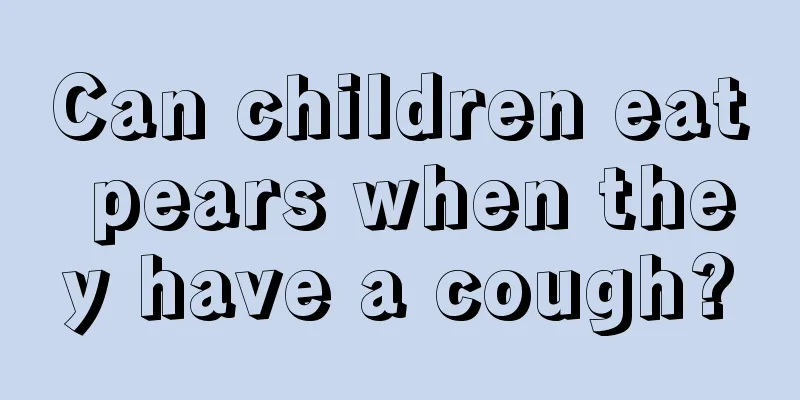What causes low blood sugar in children?

|
There are many reasons for hypoglycemia in children. For newborns, it may be caused by insufficient sugar production mechanism, especially premature babies or children with low weight. At this time, the child's liver glycogen and muscle glycogen reserves will be insufficient, which is an important cause of hypoglycemia in children. In addition, if the child has hyperinsulinemia, it is also easy to cause such phenomenon, which has a great impact on the child's growth and development. What causes low blood sugar in children? 1. Insufficient glycogen substrate in the neonatal period The main reason for the high incidence of hypoglycemia in premature and low birth weight infants is that the reserves of liver glycogen and muscle glycogen are insufficient, and body fat becomes the main energy supplier. The small size of the infant, especially premature and immature infants, or the impaired placental nutrient supply and the inadequate development of the enzyme system required for gluconeogenesis are the main causes of hypoglycemia. 2. Neonatal hyperinsulinemia Infants of diabetic mothers may have temporary hyperinsulinemia. The incidence of gestational diabetes is about 2%. Such infants have sufficient storage of glycogen, protein and fat in their bodies. Newborns of diabetic mothers have hyperinsulinemia after birth and reduced secretion of glucagon, which is different from normal newborns. At the same time, due to sympathetic nerve excitement, adrenaline in the adrenal medulla is depleted, so the production of endogenous glucose is reduced, making hypoglycemia prone to occur. 3. Hyperinsulinemia in infants and children Hyperinsulinemia can occur at any age, and neonatal hyperinsulinemia may not be caused by diabetic mothers. 4. Lack of endocrine hormones Cortisol and growth hormone are the main hormones that antagonize insulin and are important factors in maintaining blood sugar stability in the body. Simple growth hormone deficiency or panpituitarism, and (or) ACTH-glucocorticoid deficiency, reduce the enzyme activity and matrix production of gluconeogenesis, gluconeogenesis disorders, and hypoglycemia when fasting. Addison's disease and adrenoleukodystrophy can also cause hypoglycemia. In addition, when blood sugar decreases in people with adrenal medulla deficiency, the secretion of adrenaline does not increase, and the decomposition of glycogen cannot be promoted, so that blood sugar cannot rise and often remains at a low level. Glucagon deficiency can also cause hypoglycemia. 5. Matrix limitations Ketotic hypoglycemia; maple syrup urine disease. 6. Glycogen storage disease Among types of glycogen storage disease, hypoglycemia may occur in types I, III, IV, and O, among which type I glucose-6-phosphatase deficiency is more common. 7. Gluconeogenesis disorders Impaired gluconeogenesis can cause hypoglycemia. 8. Defects in fatty acid oxidation Fatty acid oxidation provides substrates for gluconeogenesis and also has an important effect on blood sugar. For example, congenital or drug-induced fatty acid metabolism defects can cause fasting hypoglycemia. Congenital deficiencies of various fat metabolizing enzymes can cause botulinum toxin deficiency or fatty acid metabolism defects, causing stagnation of fat metabolism and failure to generate ketone bodies, resulting in hypoglycemia, hepatomegaly, decreased muscle tone and convulsions. 9. Deficiency of other enzymes and other causes Galactosemia; fructose intolerance; other liver damage; drug poisoning; reduced intestinal absorption; difficult to control hypoglycemic episodes. |
<<: What to do if your child has low blood sugar
>>: Early symptoms of tuberculosis in children
Recommend
Factors that cause sleepiness in three-month-old babies
Newly born babies need careful care and attentive...
What causes uneven skin tone on baby's face?
We all know that baby's skin is particularly ...
What to do if a two-year-old baby has a fever of 39 degrees
If a two-year-old baby has a fever of 39 degrees,...
Is it normal for a newborn to poop as soon as he feeds?
Many newborns have a problem, that is, if they ar...
How to feed newborns scientifically
Reasonable feeding methods can help newborns deve...
Can the green stool problem of babies be relieved?
The baby's feces sometimes turn green. Mother...
2-year-old baby cries and says it hurts when he pees
A 2-year-old baby cries and says it hurts when he...
Why does my child's neck swell when he talks?
Many clinical diseases have obvious symptoms and ...
What are the dietary considerations for children with precocious puberty?
The keyword "precocious puberty" has oc...
When do children lose their teeth?
When we reach a certain age, the deciduous teeth ...
What to do if your baby has a high fever and convulsions
High fever convulsions in infants is a relatively...
Treatment of anemia in one month old baby
One-month-old babies always have anemia. This sym...
What can children eat to grow taller?
When children are short and not growing taller, m...
What does hemolysis mean in children?
Hemolytic disease in a child refers to the incomp...
What are the symptoms of children's intellectual disability?
There is no difference between children when they...









